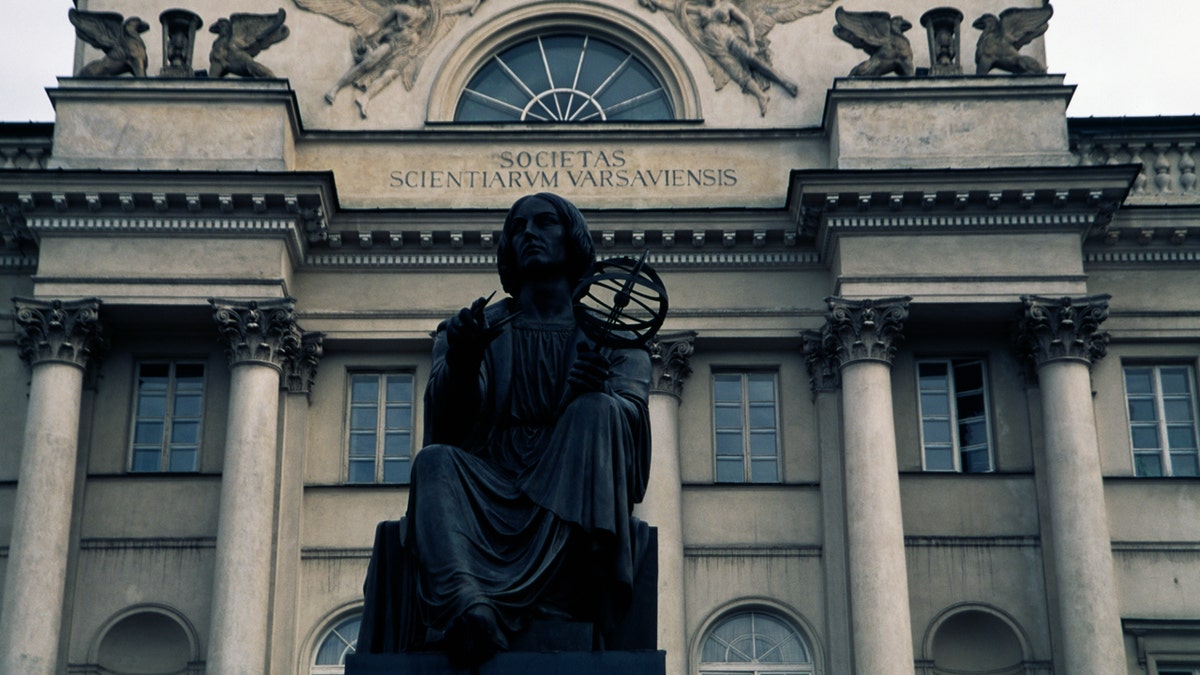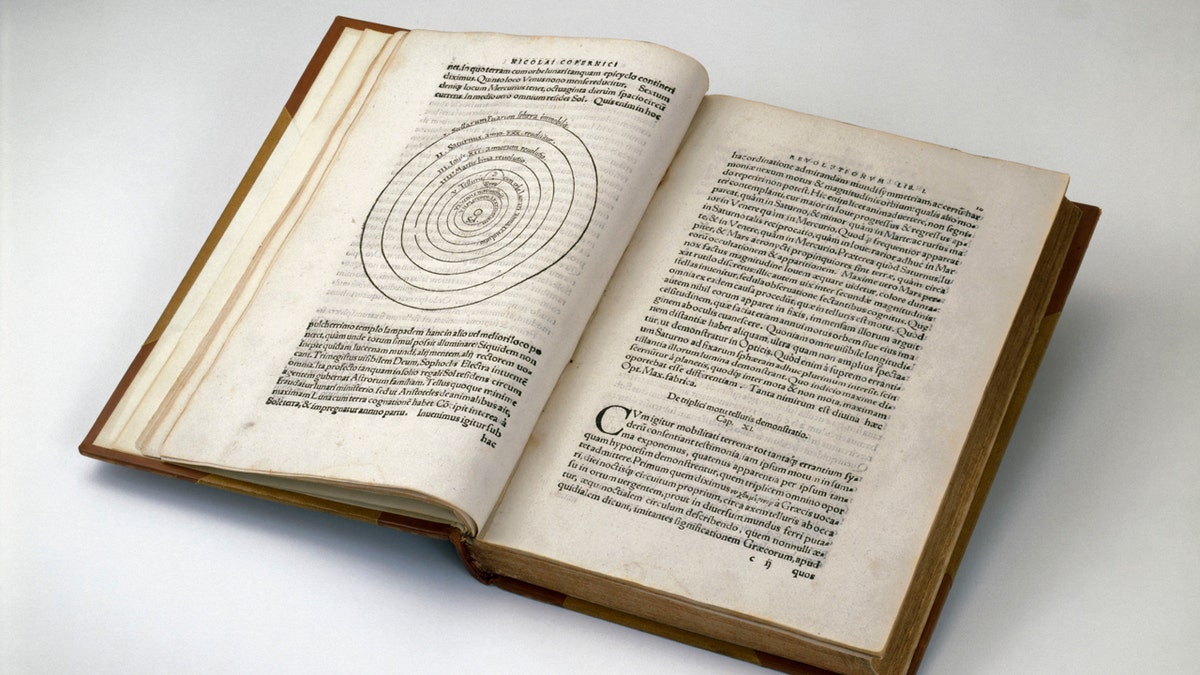A small ancient tool was unearthed in the canonical gardens of Frombork, Poland, that dates back 500 years.
The find was a rare compass made from copper. Its shape slightly resembles that of a wishbone in that it is connected at the top with the two prongs extending into the shape of a letter V.
The find was announced by the group responsible for its finding, Warminska Grupa Eksploracyjna, in a Facebook post on Aug. 4, 2024.
An ancient compass was found in Poland, and researchers believe the tool once belonged to Nicolaus Copernicus. (Pictures From History/Universal Images Group via Getty Images)
COLLEGE STUDENT IN DENMARK USES METAL DETECTOR TO DISCOVER ANCIENT JEWELRY
“Today we are very successful,” a translated Facebook statement by the group says. The group further shared that they were able to locate underground tunnels where they spotted the ancient find.
This compass is only the third of its kind to be found in Poland, according to the archeology group’s Facebook post, which also showcased photos of the discovery.
After the artifact was found, it was put in the hands of Detekt Archaeological Services, which confirmed the compass was from between the 15th and 16th centuries, according to Live Science.
The compass is believed to have possible connections to Polish astronomer and mathematician Nicolaus Copernicus. The link between Copernicus and the tool mainly comes from the fact that it was found in Frombork, specifically in the canonical gardens where Copernicus spent much of his life.

Copernicus was a famous astronomer who spent much of his life in Frombork. (DeAgostini/Getty Images)
“We discovered an ancient compass that probably belonged to Nicolaus Copernicus,” the Misja Skarb Foundation, a group also involved in the find, wrote on a translated webpage organized by Michael Antcza and dedicated to raising money for archaeological research. “This tool could be used by an astronomer to perform precise measurements and calculations that were crucial in his astronomical research. This find is of great historical importance because the compass is one of the few direct evidence of the practical application of science by Copernicus.”
ARCHAEOLOGISTS UNEARTH ANCIENT TOY IN ICELAND, DISAGREE ON ANIMAL FIGURINE’S CLASSIFICATION
Copernicus was born on Feb. 19, 1473. He was known for his work in astronomy, especially regarding the heliocentric theory. He was the first European scientist to suggest that the Earth and other planets revolved around the sun, according to History.com.
This contradicted the common belief held by astronomers that the Earth was located at the center.
His ideas laid the groundwork for many astronomers after him, who built on Copernicus’ ideas to better understand the universe.

Copernicus’ theory was described in the book “On the Revolutions of the Heavenly Spheres.” (SSPL/Getty Images)
Copernicus’ theory was described in his book, “On the Revolutions of the Heavenly Spheres,” which he finished in 1532, according to Space.com
It wasn’t until 1543 that the work was finally published, the same year Copernicus died in Frombork.
CLICK HERE TO GET THE FOX NEWS APP
Since the finding of what could be a compass of the famed astronomer, it has been relocated to the Nicolaus Copernicus Museum, which has another similar tool in its possession already, according to an Aug. 4 Facebook post from the museum.
Source link







































Add comment